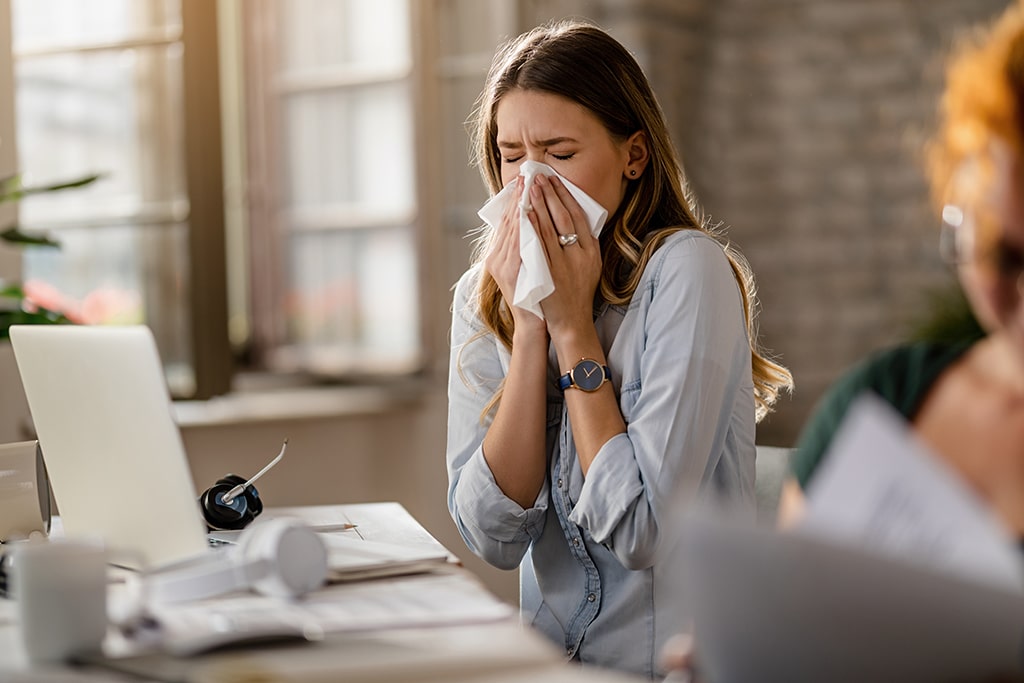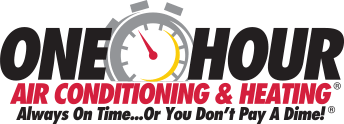
How ‘Sick Building Syndrome’ Might Necessitate An Emergency Heating And AC Repair Service | Dallas, TX
Depending on the season, you will either need a furnace or an air conditioning unit. The two are critical to ensuring that your home is comfortable, especially in the two seasons of extreme temperatures (winter and summer). No homeowner would want to wake up to a malfunctioning AC unit during summer or a faulty furnace in winter, prompting them to have an emergency heating and AC repair service. Hence, regular heating and air conditioning services are critical for the continued comfort of your Dallas, TX, home.
The high air quality protects you from a condition called sick building syndrome (SBS). The term may seem like those commonly found in Sci-Fi shows, though surprisingly, it is not that far-fetched. SBS was first coined by the WHO (World Health Organization) in the ’80s. SBS refers to when a building’s occupants experience comfort and health issues associated with time spent inside any enclosed space.
SBS is connected to excessive indoor airborne contaminants, and WHO estimates that about thirty percent of remodeled and new buildings have poor indoor air quality. Hence, it could make a homeowner enlist for an emergency heating and AC repair service, especially if the pollutants are growing in the ducts. Surprisingly, routine tasks like heating and air conditioning services can significantly reduce your exposure to sick building syndrome. Below is all about sick building syndrome, its causes, and measures you could take to prevent it.
What Is SBS?
Sick Building Syndrome (SBS) is, by definition, a condition that results in an increase in comfort and health-related complaints by those residing in a particular building. Sick Building Syndrome is directly related to indoor air quality, although its precise cause is unknown. Therefore, professionals continuously advise homeowners to service their HVAC systems. Otherwise, they will need emergency heating and AC repair services in Dallas, TX, besides having to call a doctor because they’ve developed SBS. It is because failure to service the HVAC system might see some developing issues worsen. Diagnosing SBS can also prove tricky because its symptoms largely overlap with other diseases like the common cold.
However, its occurrence makes sick-building syndrome different from other diseases. The symptoms attributed to sick building syndrome appear during that spell you spend inside a particular building, and immediately you leave, you notice improvements. Should you notice that you are facing recurring symptoms only when you are in a particular enclosed space, then you should ask to see whether the others are experiencing similar issues. If they are, your AC system might be the culprit, and you should immediately contact an emergency heating and AC repair service.
What Are the Symptoms of SBS?
Not everybody feeling sick within a particular enclosed space or building is a victim of sick building syndrome. As mentioned above, the signs of this condition are hard to detect or pinpoint because they overlap with those of many other diseases. Therefore, a very specific criterion must be met before terming any condition of sick building syndrome. The symptoms include coughing, nausea, teary eyes, sneezing, headaches, fatigue, dizziness, vomiting, and migraines. Other symptoms include cold, flu-like symptoms, itching or dry skin, throat, nose, eye irritation, and triggered allergies.
It is also possible to find some victims experiencing difficulties in concentration, sensitivity to odors, and hoarseness of the voice. A wide range of such symptoms in a victim could confirm that they suffer from a sick building syndrome and not some seasonal illness. The more the victim stays in the same building, the more the symptoms persist, hence the name “sick building syndrome.” Though there are many causes, known and unknown, poor air quality is the leading one. Hence, should you or a family member fall victim to SBS, you should immediately have an emergency heating and AC repair service besides seeking medication.
Diagnosing for SBS
The symptoms must be present as long as you’re within the building. The symptoms worsen as you spend more time indoors. The diagnosis of sick building syndrome implies that the presence of the symptoms inside the building is required. The recurrence of SBS-like symptoms after you have already left the closed structure or building or haven’t entered the building suggests the presence of another sickness. You can also see whether anyone else in the building exhibits the same symptoms.
Additionally, there shouldn’t be any other cause of the depicted symptoms. Before narrowing down that the victim has sick building syndrome, you must first rule out other issues like side effects of various medications and seasonal illnesses. Since the known cause of this condition is contaminated air, you might have to call an emergency heating and AC repair service provider in Dallas, TX, to inspect the HVAC system for clogging by allergens and other contaminants.
What Causes Sick Building Syndrome?
Although there is no single particular cause of sick building syndrome, the researchers have come up with a general category of several reasons that could cause the condition. However, sick building syndrome arises whenever a building has inadequate air quality. Hence anything that could lower the quality of air from improper heating and air conditioning maintenance, a lack of enough ventilation, overcrowding, and inefficient building design could be a cause.
If left ignored for a long time, any of the above factors could make the building occupants uncomfortable and cause SBS. Besides causing sick building syndrome, improper HVAC system maintenance could mean you’ll soon have to enlist emergency heating and AC repair services. Hence, create a maintenance plan with a licensed technician and meticulously follow it. Below are the main causes of sick building syndrome:
Poor Ventilation
All buildings must be properly ventilated, and poor ventilation could result in severe health complications. Ventilation allows the air pumped into your home by an HVAC system to be circulated properly. Bacteria, viruses, mold, and other different biological contaminants are always present in your environment, albeit in low quantities. Sometimes, they might find their way into your home. With poor ventilation or in a building where ventilation isn’t properly maintained, the contaminants might increase in concentration and multiply in your indoor air.
Moreover, the HVAC vents and air ducts could be covered in mold and affect your indoor air adversely. You might be forced to call an emergency heating and AC repair service from inefficiencies in the system to various discomforts. So, what is the impact? Besides some components of the air conditioning system failing or malfunctioning, the occupants of that building of your Dallas, TX, home might start complaining of discomfort and feeling sick. Their productivity and comfort will also take a toll. Such are issues that should prompt you to contact an emergency heating and AC repair service to inspect the air conditioner and perform the necessary maintenance activities.
A study estimated annual losses caused by SBS to be to the tune of $50 Bn. Based on the US data, another study found the loss to be about $15-40 Bn annually. You also could contact air conditioning sickness if your room is poorly ventilated. Hence, you must improve the ventilation of your commercial buildings, home, or office. It will help you avert SBS and having to call an emergency heating and AC repair service.
Air Pollutants
Air contaminants like dust particles, nitrogen oxides, sulfur oxide glasses, pet dander, molds, and other pollutants might find their way into your building through the air ducts. Besides, if you haven’t had the air filters cleaned by a professional over time or the filters aren’t properly sized, the contaminants can find their way into your home and wreak havoc. For the umpteenth time, failure to meticulously follow an HVAC maintenance plan will directly mean that you’ll have to call an emergency heating and AC repair service when matters get out of hand. When the pollutants enter your home, they will have minimal impacts at first, and they will then gradually spread throughout your building or home, resulting in sick building syndrome. Hence, use properly sized air filters and have regular maintenance of your HVAC systems by a professional to avert SBS. It will also ensure that your HVAC system is efficiently functioning; thus, there’s no need for an emergency heating and AC repair service.
Biological Contaminants
As mentioned above, molds, pollen, bacteria, and viruses are biological contaminants that surround your home, albeit in low quantities. If you haven’t followed a thorough HVAC maintenance plan, your air conditioning system might develop various problems. The air ducts might accumulate water from their internal condensation; the condensation might accumulate in the drain pans and humidifiers or even on carpeting, ceiling tiles, and insulation. The biological contaminants thrive in moist but warm environments. Hence, mold, bacteria, and viruses might breed and multiply, resulting in different issues.
These contaminants will result in issues that will cause various SBS symptoms. Hence, HVAC maintenance can help reduce the breeding of these biological elements, averting the occurrence of sick building syndrome. However, when such symptoms manifest in your family members, you should see a doctor and call an emergency heating and AC repair service to inspect the HVAC system.
Chemical Contaminants Indoors
The majority of indoor air pollution originates from inside the structure. For instance, volatile organic compounds (VOCs), such as formaldehyde, can be released by manufactured wood products, carpeting, adhesives, pesticides, upholstery, copy machines, and cleaning chemicals. Environmental tobacco smoke contributes to high amounts of VOCs, other hazardous chemicals, and respirable particulate matter. When these chemicals are inhaled, they could make a person develop SBS.
Hence, ensure you properly service your HVAC system to let it blow them outside and make your Dallas, TX, home conducive. Otherwise, emergencies like sick building syndrome will affect your family. The failure to service the unit also might see some of its components damaged, resulting in a need for an emergency heating and AC repair service.
Averting Sick Building Syndrome
Air Filter Cleaning
It is well known that the contaminants like mold might breed and multiply in the air ducts, particularly if they are dirty. Hence, cleaning the air filter or replacing them regularly will deny the biological agents a place to thrive, and SBS will be a resolved issue. Since the air can smoothly flow into your indoor space, your HVAC system isn’t exposed to problems, meaning you won’t have to call an emergency heating and AC repair service.
Routine Air Duct Cleaning
The other measure you can take to target the pollutant source is cleaning the air ducts. Condensation of the ducts, dust, pollen, rodent droppings, and bird nests are among the reasons why the biological agents might thrive and breed in the ducts, creating conditions that favor the development of SBS. Cleaning them regularly eliminates this possibility. If the ducts are clogged, you might have to call an emergency heating and AC repair service in Dallas, TX, besides experiencing sick building syndrome issues.
Installing an Air Purifier
Air purifiers are an excellent addition to your home. They purify indoor air, removing contaminants that could cause sick building syndrome. Other than purifying the air, they also remove the strain on your HVAC system, meaning they can easily cool your home. Its components are not exposed to wear and tear, averting an emergency breakdown. It means that you won’t need emergency heating and AC repair services.
It is established that one of the causes of sick building syndrome is poor indoor air quality. Hence, you can avert this issue by taking measures that can improve your indoor air. One of those measures is routine maintenance of your Dallas, TX, HVAC system. This also means that you won’t have to enlist for an emergency heating and AC repair service. Thus, always have the filters replaced, ducts cleaned, and other parts regularly serviced to avert HVAC emergencies and issues like sick building syndrome. However, contact us at One Hour Air Conditioning & Heating of Dallas if you need an emergency heating and AC repair service.





